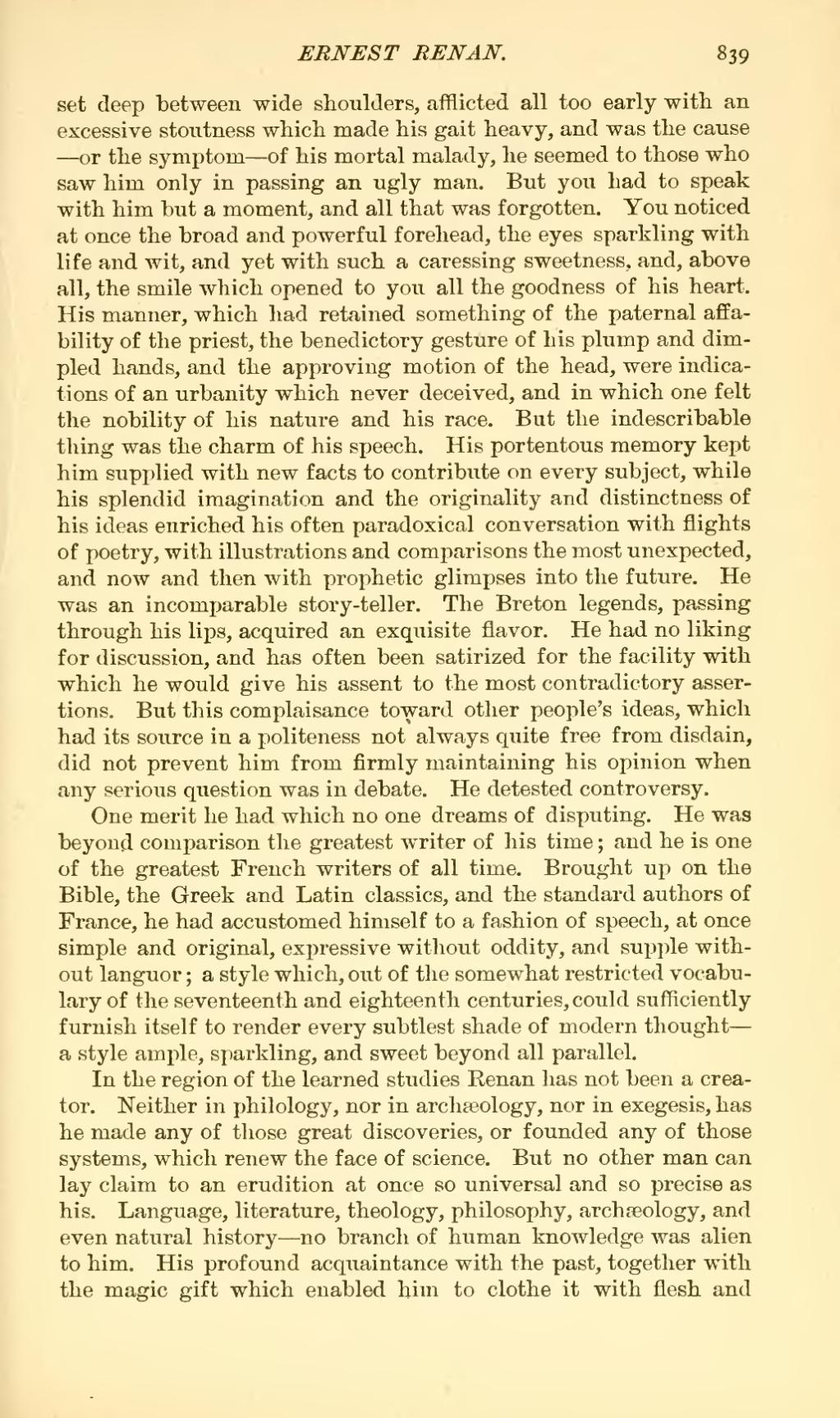set deep between wide shoulders, afflicted all too early with an excessive stoutness which made his gait heavy, and was the cause—or the symptom—of his mortal malady, he seemed to those who saw him only in passing an ugly man. But you had to speak with him but a moment, and all that was forgotten. You noticed at once the broad and powerful forehead, the eyes sparkling with life and wit, and yet with such a caressing sweetness, and, above all, the smile which opened to you all the goodness of his heart. His manner, which had retained something of the paternal affability of the priest, the benedictory gesture of his plump and dimpled hands, and the approving motion of the head, were indications of an urbanity which never deceived, and in which one felt the nobility of his nature and his race. But the indescribable thing was the charm of his speech. His portentous memory kept him supplied with new facts to contribute on every subject, while his splendid imagination and the originality and distinctness of his ideas enriched his often paradoxical conversation with flights of poetry, with illustrations and comparisons the most unexpected, and now and then with prophetic glimpses into the future. He was an incomparable story-teller. The Breton legends, passing through his lips, acquired an exquisite flavor. He had no liking for discussion, and has often been satirized for the facility with which he would give his assent to the most contradictory assertions. But this complaisance toward other people's ideas, which had its source in a politeness not always quite free from disdain, did not prevent him from firmly maintaining his opinion when any serious question was in debate. He detested controversy.
One merit he had which no one dreams of disputing. He was beyond comparison the greatest writer of his time; and he is one of the greatest French writers of all time. Brought up on the Bible, the Greek and Latin classics, and the standard authors of France, he had accustomed himself to a fashion of speech, at once simple and original, expressive without oddity, and supple without languor; a style which, out of the somewhat restricted vocabulary of the seventeenth and eighteenth centuries, could sufficiently furnish itself to render every subtlest shade of modern thought—a style ample, sparkling, and sweet beyond all parallel.
In the region of the learned studies Renan has not been a creator. Neither in philology, nor in archeology, nor in exegesis, has he made any of those great discoveries, or founded any of those systems, which renew the face of science. But no other man can lay claim to an erudition at once so universal and so precise as his. Language, literature, theology, philosophy, archæology, and even natural history—no branch of human knowledge was alien to him. His profound acquaintance with the past, together with the magic gift which enabled him to clothe it with flesh and

